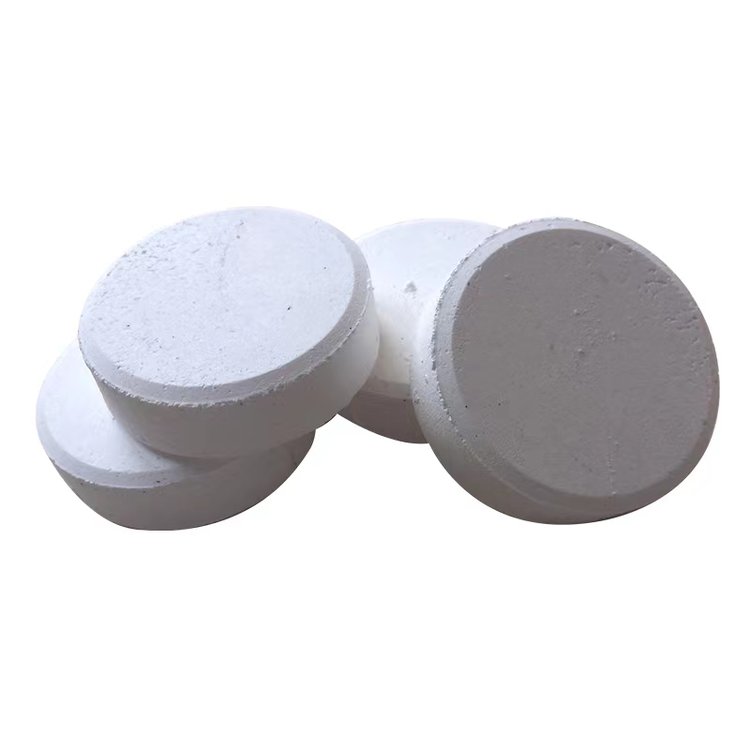Chlorine plays a vital role in maintaining clean and safe swimming pools. As a primary disinfectant, chlorine for pools ensures that harmful bacteria and viruses do not thrive in the water. However, temperature significantly impacts how effective pool chlorine can be. Understanding this relationship can help pool owners maintain optimal water quality.
I. The Role of Chlorine in Pools
Chlorine acts as a powerful sanitizer in swimming pools. It works by breaking down contaminants and killing harmful microorganisms. Pool owners often use chlorine tablets for convenience and effectiveness. However, temperature influences how quickly chlorine dissolves and how effective it is in the water.

II. Temperature’s Impact on Chlorine Dissolution
Temperature affects the rate at which chlorine tablets dissolve. When water temperatures rise, chlorine tablets dissolve more quickly. This rapid dissolution can lead to a sudden increase in chlorine levels. Conversely, lower temperatures slow down the dissolution process. As a result, the release of chlorine into the pool water becomes less effective.
Maintaining appropriate temperatures is crucial for maximizing chlorine efficacy. Pool owners should monitor water temperatures regularly, especially during hot summer months. They should adjust chlorine dosage accordingly. When temperatures rise, they might need to add more chlorine to maintain the desired levels.
III. The Chemical Reaction of Chlorine
Chlorine undergoes chemical reactions in water that can vary with temperature. At higher temperatures, chlorine reacts more quickly with contaminants. This means it can kill bacteria and viruses faster. However, excessive heat can also lead to chlorine loss through evaporation. When chlorine evaporates, its efficacy decreases.
On the other hand, lower temperatures can slow down these reactions. This slower reaction rate allows contaminants to linger in the water longer. As a result, pool water may become less sanitary. Therefore, pool owners must consider both temperature and chlorine levels to ensure safety.
IV. The Importance of Stabilizers
Stabilizers, such as cyanuric acid, play an essential role in protecting chlorine. They help prevent chlorine from being degraded by sunlight. High temperatures can increase chlorine loss due to UV exposure. Adding stabilizers can mitigate this effect, ensuring that chlorine for pools remains effective longer.
When pool water temperatures rise, it becomes even more important to use stabilizers effectively. These chemicals play a vital role in maintaining consistent chlorine levels, which helps prevent the need for frequent adjustments. This becomes particularly crucial during peak swimming seasons when pools experience increased usage. High temperatures can accelerate chlorine degradation, making stabilizers essential for ensuring that the pool water remains safe and sanitary for all swimmers throughout the summer months.
V. Chlorine Levels and Temperature Regulation
Maintaining appropriate chlorine levels is essential for pool safety. Pool owners should regularly test chlorine levels. Ideally, free chlorine levels should range between 1 to 3 parts per million (ppm) for effective disinfection. If temperatures rise, these levels may need to be increased.
Pool owners should also consider various weather and environmental factors that can significantly affect chlorine efficacy. Heavy rains can dilute chlorine levels, while increased sunlight can lead to faster chlorine degradation due to UV exposure. Additionally, high temperatures can accelerate the evaporation of chlorine. Regular testing of the water allows for timely adjustments, ensuring that the pool remains clean, safe, and enjoyable for all users throughout the season.
VI. Practical Tips for Pool Owners
Here are some practical tips for pool owners to maintain optimal chlorine efficacy:
1. Regularly Monitor Water Temperature: Use a thermometer to keep track of pool temperatures. Adjust chlorine levels based on temperature readings.
2. Test Chlorine Levels Frequently: Use a reliable test kit to check chlorine levels regularly. This helps ensure that the water remains safe for swimming.
3. Use Stabilizers Wisely: Consider adding stabilizers to protect chlorine from UV degradation. This will prolong the efficacy of pool chlorine.
4. Adjust Chlorine Dosage Accordingly: Be proactive about adding chlorine based on temperature and usage. Higher temperatures may require additional chlorine.
5. Maintain Water Circulation: Ensure that pool water circulates properly. Good circulation helps distribute chlorine evenly and keeps the water clean.

VII. Conclusion
In conclusion, temperature plays a significant role in the efficacy of chlorine tablets. Understanding this relationship helps pool owners maintain clean and safe swimming environments. By monitoring temperatures, adjusting chlorine levels, and using stabilizers, they can ensure optimal disinfection. Chlorine is essential for healthy pools, and proper management will lead to enjoyable swimming experiences. Remember, effective chlorine for pools means happier and safer swims for everyone.
 Instant
Quote
Instant
Quote Email
Us
Email
Us